detail profile mikl c3 b3s jancs c3 b3
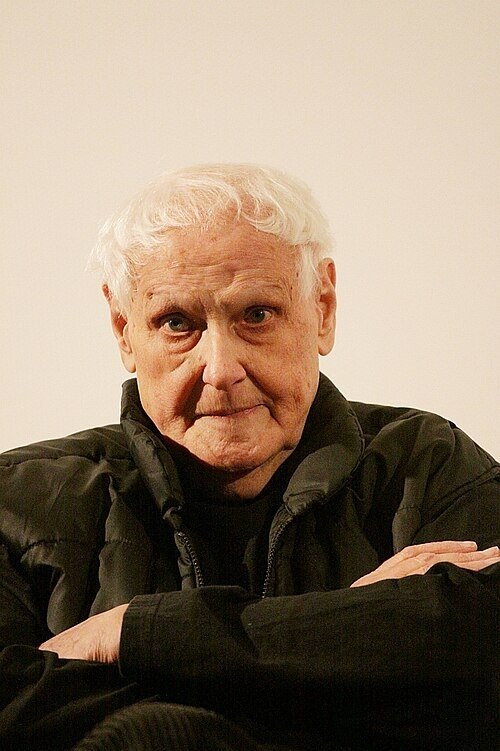
Miklós Jancsó
Jancsó Miklós
atau dikenal sebagai
Riwayat Hidup
Miklós Jancsó (27 September 1921 – 31 January 2014) was a Hungarian film director and screenwriter.
Jancsó achieved international prominence from the mid-1960s onwards, with works including The Round Up (Szegénylegények, 1965), The Red and the White (Csillagosok, katonák, 1967) and Red Psalm (Még kér a nép, 1971).
Jancsó's films are characterized by visual stylization, elegantly choreographed shots, long takes, historical periods, rural settings, and a lack of psychoanalyzing.
A frequent theme of his films is the abuse of power.
His works are often allegorical commentaries on Hungary under Communism and the Soviet occupation, although some critics prefer to stress the universal dimensions of Jancsó's explorations.
Towards the end of the 1960s and especially into the 1970s, Jancsó's work became increasingly stylized and overtly symbolic.
He received five nominations for the Best Director Award at the Cannes Film Festival.
winning for Red Psalm in 1972.
In 1973 he was awarded the prestigious Kossuth Prize in Hungary.
He received awards for his life work in 1979 and 1990, at Cannes and Venice respectively.
Description above from the Wikipedia article Miklós Jancsó, licensed under CC-BY-SA, full list of contributors on Wikipedia.
Info Pribadi
Peran Yang Di Mainkan Miklós Jancsó
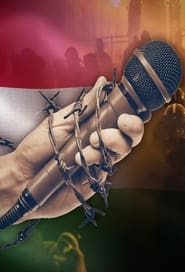 Anthology film made as an act...
Anthology film made as an act...Hungary 2011 2012
Anthology film made as an act of protest against Hungarian government of Viktor Orban.
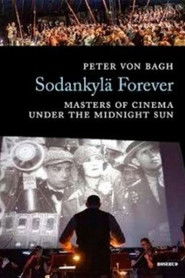 The Midnight Sun Film Festival is...
The Midnight Sun Film Festival is...Sodankylä Forever 2010
The Midnight Sun Film Festival is held every June in the Finnish village of Sodankylä beyond the arctic circle — where the sun never sets. Founded by Aki and Mika Kaurismäki along with Anssi Mänttäri and Peter von Bagh in 1985, the festival has played host to an international who’s who of directors and each day begins with a two-hour discussion. To mark the festival’s silver anniversary, festival director Peter von Bagh edited together highlights from these dialogues to create an epic four-part choral history of cinema drawn from the anecdotes, insights, and wisdom of his all-star cast: Coppola, Fuller, Forman, Chabrol, Corman, Demy, Kieslowski, Kiarostami, Varda, Oliveira, Erice, Rouch, Gilliam, Jancso — and 64 more. Ranging across innumerable topics (war, censorship, movie stars, formative influences, America, neorealism) these voices, many now passed away, engage in a personal dialogue across the years that’s by turns charming, profound, hilarious and moving.
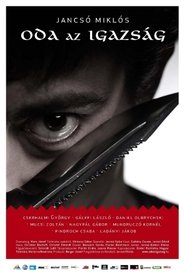 Concerning the Mtys era in Hungarian...
Concerning the Mtys era in Hungarian...So Much for Justice! 2010
Concerning the Mátyás era in Hungarian history, during the reign of Matthias Corvinus (1443–1490), the film focuses on three eras of the king's life: the young Mátyás fights for the throne, the older Mátyás as king, and the fate of the royal crown and the royal heir after his death.
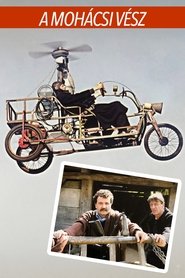 By the notes of Fith Pompeiusz...
By the notes of Fith Pompeiusz...The Battle of Mohács 2004
By the notes of Fiáth Pompeiusz, the one-time friend of Kapa and Pepe, Professor Szirtes has solved the secret of the time machine, and he realizes the invention relying on "special" H2O. Kapa and Pepe shall return by it into the past in order to set time right, which is out of joint, that is, to correct history, to save King Louis II, and prevent the Mohács Disaster. Pepe yields to the not too tender persuasion to enter upon the great journey through time, dies and revives, and they arrive at the battlefield of Mohács in time. Kapa films the events. The Turks win and cut off the king’s, Pepe’s, head, still the Hungarians dictate the peace treaty. Kapa and Pepe want to return, they fill the time machine up with water from the well, yet it won’t start. Even so Kapa and Pepe hover over Budapest and quarrel.
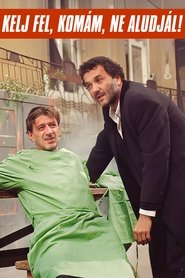 This time Kapa and Pepe are...
This time Kapa and Pepe are...Wake Up, Mate, Don't You Sleep 2003
This time, Kapa and Pepe are first of all prisoners of war – and convicts taken to forced labor service, Jews, Hungarian soldiers, German soldiers. Once they are to be executed, then again they are to perform executions. The film tells in spectacular episodes about the fact that in the past more than one century and a half we kept marching from war to war; occupation and liberation turned out to be indifferent, and why couldn’t the Jews execute the SS-guys? Our heroes hover about dilapidated barracks, then again on the bridges of the capital they guess whose satellites or eternal friends for all times we might be just now. In the cupboard, among the preserved fruit bottles, Stalin is still hiding. The authors of the film are cited before court, then in a showcase hospital they are waiting for the end to come. A Soviet soldier-maid closes the film with a Péter Nádas-quote.
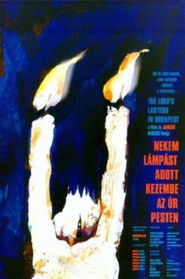 In the Kerepesi Street cemetery three...
In the Kerepesi Street cemetery three...The Lord's Lantern in Budapest 1999
In the Kerepesi Street cemetery, three grave diggers contemplate the fate of the world, then they step out of this role and in a sequence of episodes they play the typical figures of contemporary Hungarian reality, the fat cat, the swashbuckler, the victim, underworld chieftains, and present little absurd dramas of love, marriage, friendship, public order and legal safety. The author and the film director walk among them all the time, contemplating, laughing at their plays. The stories starting from the graveyard and returning there warn of the inevitability of death. The author and the director (Gyula Hernádi and Miklós Jancsó) wisely make friends with death.
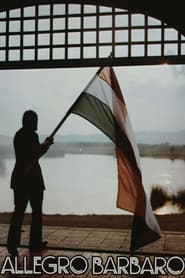 Zsadnyi flees from the authorities with...
Zsadnyi flees from the authorities with...Allegro Barbaro 1979
Zsadányi flees from the authorities with his goddaughter, Bankós Mari, and they escape into the forest. The film then skips ahead thirty-fold years: Zsadány and Mari are now lovers, with the sound of war in the background halting their romance. The old friends of Zsadányi have joined with the Nazis, and the landowner living with his peasants in a socialist community grows distant from them. Zsadányi is held responsible for political problems in the country, and will pay with his life.
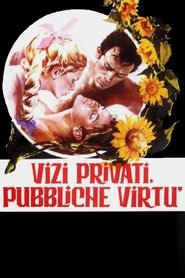 The setting is a Central European...
The setting is a Central European...Private Vices, Public Virtues 1976
The setting is a Central European kingdom, near the turn of the century. Bored by his very proper wife, the youthful heir to the throne spends his time in amorous dalliances at a sprawling country estate. His wife departs at the arrival of his friends, and they organize a celebration which becomes a wild orgy and culminates in death and tragedy.
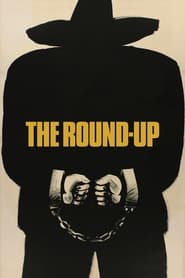 After the failure of the Kossuths...
After the failure of the Kossuths...The Round-Up 1966
After the failure of the Kossuth's revolution of 1848, people suspected of supporting the revolution are sent to prison camps. Years later, partisans led by outlaw Sándor Rózsa still run rampant. Although the authorities do not know the identities of the partisans, they round up suspects and try to root them out by any means necessary.
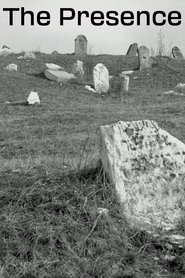 Two old men enter an abandoned...
Two old men enter an abandoned...The Presence 1965
Two old men enter an abandoned synagogue, look at the decay around them, and pray.
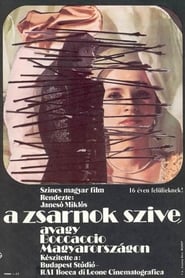 A historical drama set in the 1400...
A historical drama set in the 1400...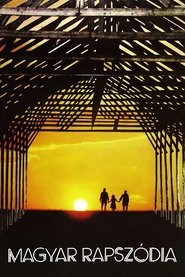 The movie portrays a peasant revolt...
The movie portrays a peasant revolt...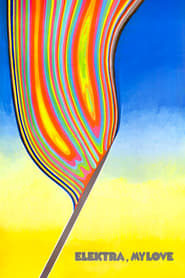 It has been fifteen years since...
It has been fifteen years since...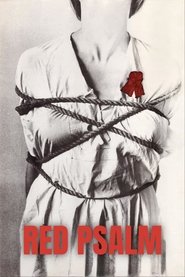 Set in the 1890s on the...
Set in the 1890s on the... A journalist preparing a story on...
A journalist preparing a story on...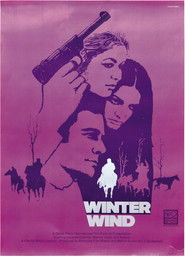 The preparation in Hungary of the...
The preparation in Hungary of the...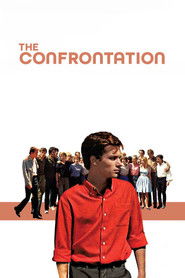 In postWWII Hungary a group of...
In postWWII Hungary a group of...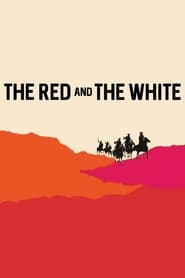 In 1919 Hungarian Communists aid the Bolsheviks...
In 1919 Hungarian Communists aid the Bolsheviks... In the aftermath of World War...
In the aftermath of World War...